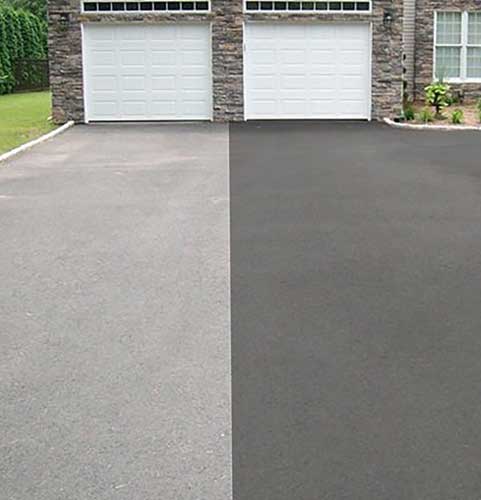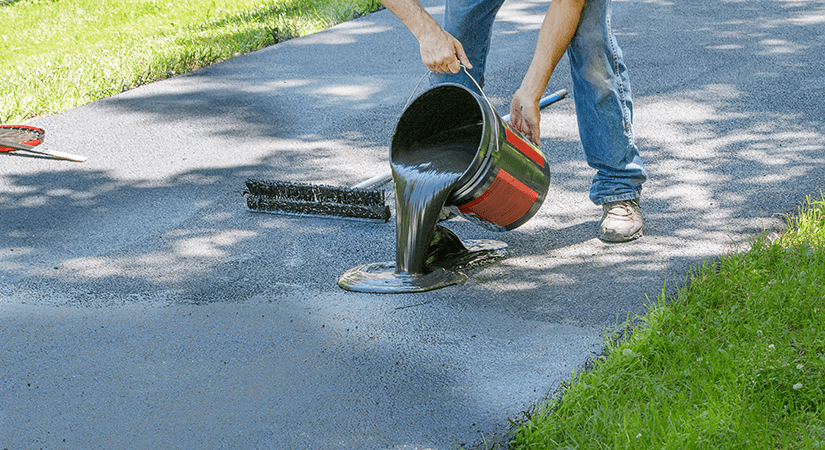Efficient Asphalt Repair: Cold Mix Sealing Techniques Introduced
Efficient Asphalt Repair: Cold Mix Sealing Techniques Introduced
Blog Article
Cold Mix Asphalt Vs. Hot Mix Asphalt: Which Is Right for You?

Make-up Distinctions
Cold mix asphalt is generated by emulsifying the asphalt binder with water and an emulsifying agent prior to blending it with accumulation. The warm mix asphalt production procedure involves heating the aggregate and asphalt binder independently prior to incorporating them at the asphalt plant.
Additionally, cold mix asphalt tends to be less dense and more flexible than warm mix asphalt. This flexibility makes it much better suited for areas with higher levels of movement, such as driveways or roadways with rush hour. In comparison, warm mix asphalt is known for its high toughness and resistance to rutting and breaking, making it a recommended option for highways and high-traffic roads where long life is essential.
Setup Refine Differences
The process of setting up cold mix and warm mix asphalt shows significant variances in their requirements and treatments. In contrast, hot mix asphalt requires a more elaborate installment procedure. Due to the home heating demands, warm mix asphalt setups are typically carried out by professionals with specialized devices, making certain an extra structurally sound and long-term outcome.
Longevity and Durability Aspects
When considering asphalt choices, toughness and durability are vital variables to review for lasting pavement efficiency,. Warm mix asphalt (HMA) is known for its outstanding durability and long life. The heats throughout the laying and mixing process enable far better compaction, resulting in a denser and stronger pavement framework. This brings about HMA being a lot more resistant to heavy website traffic loads, severe weather, and the results of aging contrasted to cool mix asphalt (CMA)
In regards to longevity, HMA commonly outperforms CMA as a result of its exceptional toughness and resistance residential or commercial properties. HMA sidewalks have a longer service life, needing less constant repair work and upkeep, which can translate to set you back savings in the future. Furthermore, HMA sidewalks are more quickly customizable to satisfy specific project needs, even more boosting their durability.
Expense Considerations
Considering the monetary effects is a critical element when evaluating the option in between warm mix asphalt (HMA) and cold mix asphalt (CMA) for sidewalk projects. While the preliminary price of warm mix asphalt is usually greater than that of cold mix asphalt, HMA usually provides a more economical solution in the future as a result of its superior resilience and durability. HMA is known for its capability to hold up against rush hour lots and severe climate condition, lowering the demand for constant repairs and upkeep. On the other hand, cold mix asphalt is extra inexpensive upfront however might call for even more constant patching and resurfacing, bring about greater maintenance costs over time.
In addition to material prices, it's vital to think about the costs connected with setup and maintenance when contrasting HMA and CMA. HMA generally requires specific equipment and skilled labor for proper installment, which can affect overall task expenses. On the other hand, CMA is simpler to collaborate with and can usually be used using simpler methods, potentially decreasing installation expenditures. Inevitably, the decision in between HMA and CMA need to take into account not just the preliminary cost but also the long-term economic ramifications to figure out one of the most economical choice for the details pavement job.
Environmental Impact Contrast
Comparison of the environmental effects between warm mix asphalt (HMA) and cold mix asphalt (CMA) discloses distinct distinctions in sustainability practices. HMA production calls for high temperature levels, bring about enhanced power intake and greenhouse gas discharges. The procedure also launches volatile organic compounds (VOCs) and harmful air toxins (HAPs) into the ambience. On the other hand, CMA is generated and applied at lower temperature Extra resources levels, reducing power use and discharges considerably. The lower manufacturing temperature levels of CMA result in reduced fuel usage and lower levels of carbon dioxide emissions, making it a much more eco pleasant choice.
Furthermore, the usage of CMA typically entails reusing existing asphalt sidewalk, advertising source conservation and reducing the amount of waste sent to garbage dumps. This reusing element better boosts the sustainability of CMA compared to HMA. Overall, when home taking into consideration the ecological effect, CMA emerges as an extra environmentally sustainable selection due to its reduced energy demands, reduced emissions, and the capacity for reusing existing products. By choosing for CMA over HMA, road building and construction jobs can contribute positively to environmental preservation initiatives.
Final Thought
To conclude, the option in between cool mix asphalt (CMA) and warm mix asphalt (HMA) depends on various aspects such as make-up, setup procedure, resilience, durability, cost, and environmental effect. asphalt patch repair. While CMA provides a economical and fast solution for small repairs, HMA guarantees remarkable sturdiness and long life for hefty traffic areas. Think about these variables very carefully to figure out which kind of asphalt is the appropriate option for your paving requires

Considering the financial ramifications is a critical element when reviewing the selection between hot mix asphalt (HMA) and cold mix asphalt (CMA) for sidewalk jobs. While the first expense of hot mix click here for more asphalt is commonly greater than that of cold mix asphalt, HMA frequently gives an extra economical solution in the long run due to its superior toughness and long life. cold mix asphalt.Comparison of the environmental effects in between warm mix asphalt (HMA) and cold mix asphalt (CMA) exposes distinct differences in sustainability practices.In conclusion, the selection in between cool mix asphalt (CMA) and warm mix asphalt (HMA) depends on different aspects such as make-up, installation procedure, toughness, long life, cost, and ecological influence
Report this page